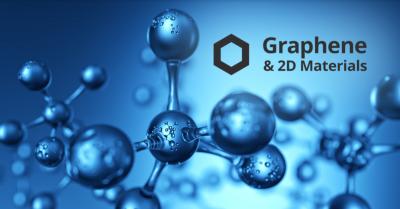Graphene Oxide: Introduction and Market News - Page 11
Graphene Flagship welcomes sixteen new FLAG-ERA projects
The Graphene Flagship has announced 16 New FLAG-ERA projects, that cover a broad range of topics, from fundamental to applied research. These projects which will become Partnering Projects of the Graphene Flagship receiving around â¬11 million in funding overall.
Bringing together a diverse range of European knowledge and expertise, FLAG-ERA is an ERA-NET (European Research Area Network) initiative that aims to create synergies between new research projects and the Graphene Flagship and Human Brain Project.
Researchers develop new high performance asymmetric supercapacitors
Researchers at Penn State and two universities in China have found that a new kind of supercapacitor, based on manganese oxide with cobalt manganese oxide as a positive electrode and a form of graphene oxide as a negative electrode, could combine the storage capacity of batteries with the high power and fast charging of other supercapacitors.
The group started with simulations to see how manganese oxide’s properties change when coupled with other materials. When they coupled it to a semiconductor, they found it made a conductive interface with a low resistance to electron and ion transport. This will be important because otherwise the material would be slow to charge.
Zen Graphene Solutions and Graphene Composites collaborate on graphene ink on fabrics for Coronavirus protection

 ZEN Graphene Solutions has announced an international collaboration with UK-based Graphene Composites to fight COVID-19 by developing a potential virucidal graphene-based composite ink that can be applied to fabrics including N95 face masks and other personal protective equipment (PPE) for significantly increased protection. Once the development, testing, and confirmation of the graphene ink's virucidal ability have been completed, the ink will then be incorporated into fabrics used for PPE.
ZEN Graphene Solutions has announced an international collaboration with UK-based Graphene Composites to fight COVID-19 by developing a potential virucidal graphene-based composite ink that can be applied to fabrics including N95 face masks and other personal protective equipment (PPE) for significantly increased protection. Once the development, testing, and confirmation of the graphene ink's virucidal ability have been completed, the ink will then be incorporated into fabrics used for PPE.
Francis Dubé, CEO of ZEN commented, "We are pleased to be collaborating with GC and be on the forefront of a new innovative technology that could contribute to combating the deadly COVID-19 virus. The development of this potential COVID-19 virucidal graphene ink is coming at a crucial time to provide effective PPE supplies for the safety of frontline workers and hospital staff." Dr. Dubé continued, "The current N95 masks trap the virus but don't kill it. Our testing will demonstrate if the graphene ink is an effective virucide which would kill the virus as this could make a big difference to people's safety. We have been very impressed by the Graphene Composites team and look forward to continued collaborations."
New "superhydrophobic" graphene material can separate oil from water
Researchers at the Indian Institute of Technology Guwahati claim they have developed a graphene-based "superhydrophobic" material that can separate oil and water. The material could have various uses in industry and healthcare.
Superhydrophobic materials materials with extreme water repellency are considered the best for removing oil from water, but they are generally not scalable, use environmentally toxic products such as fluorinated polymers, or have poor mechanical and chemical stability.
Graphene-based actuator swarm enables programmable deformation
Researchers at Jilin University and Tsinghua University in China have presented a self-healing graphene-based actuator swarm that enables programmable 3D deformation by integrating SU-8 pattern arrays with GO.
 (a) Schematic illustration of the fabrication of patterned SU-8/GO bilayer film using UV lithography. (b) The paper model of patterned SU-8/GO ribbon and its predictable moisture-responsive deformation under humidity actuation. Credit: Science China Press
(a) Schematic illustration of the fabrication of patterned SU-8/GO bilayer film using UV lithography. (b) The paper model of patterned SU-8/GO ribbon and its predictable moisture-responsive deformation under humidity actuation. Credit: Science China Press
Unlike previously published works, the actuator swarm can realize active and programmable deformation under moisture actuation. Here the SU-8 pattern arrays can be fabricated into any desired structures, in which an individual SU-8 pattern can be considered as an inert layer. In combination with the bottom GO layer, each SU-8 structure can form an individual bimorph actuator and deform actively under stimulation.
Graphene Oxide helps produce stable water-based graphene dispersions
Umeå researchers have shown how activated graphene, activated carbons and other hydrophobic carbons can be dispersed in water in a form of micrometer-sized particles. The key agent that helps to make these dispersions last for days is the use of graphene oxide. The authors have applied for patent for the method to prepare dispersions.
 (a)a dense a-rGO aqueous dispersion (b)The dispersion can be prepared in liter amounts. (c)The a-rGO dispersion deposited and dried on a flexible stainless steel substrate shows good adhesion even under bending conditions. (d)Dispersions remain stable
(a)a dense a-rGO aqueous dispersion (b)The dispersion can be prepared in liter amounts. (c)The a-rGO dispersion deposited and dried on a flexible stainless steel substrate shows good adhesion even under bending conditions. (d)Dispersions remain stable
The team explained that graphene, graphite and activated carbons are quite different forms of carbon but they have hydrophobic properties in common. On the other hand, using dispersions or solutions for many applications is a big advantage. Ideally, one can spray or paint graphene dispersion on metal foil and prepare e.g. electrode material by simply drying.
Graphene-Info updates all its graphene market report
Today we published new versions of all our graphene market reports. Graphene-Info provides comprehensive niche graphene market reports, and our reports cover everything you need to know about these niche markets. The reports are now updated to April 2020.
The Graphene Batteries Market Report:
- The advantages using graphene batteries
- The different ways graphene can be used in batteries
- Various types of graphene materials
- What's on the market today
- Detailed specifications of some graphene-enhanced anode material
- Personal contact details into most graphene developers
The report package provides a good introduction to the graphene battery - present and future. It includes a list of all graphene companies involved with batteries and gives detailed specifications of some graphene-enhanced anode materials and contact details into most graphene developers. Read more here!
The UK establishes a Graphene Innovation Group, explains how graphene assists business goals
Following a Global Business innovation Programme initiated in 2019, and a collaborative visit to the US, the UK established a new Graphene Innovation Group (UK-GIG) that puts together 15 specialists from UK companies that together share many years of experience in graphene and expertise across the entire value chain.

Scott Storey, a Business Innovation Advisor at Inventya and the lead coordinator at the UK-GIG, explains more about the group - "We can take an everyday industrial challenge, apply our combined graphene knowledge, engineer and manufacture an effective solution, and take that solution to national and international markets. UK-GIG is now an established cohort of 15 UK-based graphene companies, ranging from early stage through to established businesses. The UK-GIG companies are fully aware of the huge potential for graphene technology to improve materials or be used in novel ways across multiple sectors. They are seeking collaboration opportunities where they can combine their expertise to do what they do best - solve problems, design graphene applications, and help commercialize an increasingly exciting field. They aim to make the UK the best place on earth to be grafting in graphene!"
We have reached out to some of the GIG members, to find out how has graphene effected their business and products, and the effects of graphene on their materials or devices.
Navigate the emerging graphene market
This is a sponsored article by Dr Richard Collins, IDTechEx
Graphene is on the cusp of significant market growth; the opportunities are exciting and diverse, each with significant potential. Graphene and 2D Materials Europe 2020 (13-14 May, Berlin) is the largest B2B event on the topic with a dedicated focus on the commercial frontiers. www.GrapheneEurope.tech

There is often confusion surrounding the types of graphene, commercial status, and their target markets. This article will briefly summarise each and showcase what to expect at this event.
US energy department funds project for coal-derived graphene production process
The US Department of Energy’s (DOE) Office of Fossil Energy (FE) has selected three projects to receive approximately USD$3 million in federal funding for cost-shared research and development projects.
Among these projects is a laboratory-scale coal-derived graphene process the University of North Dakota will demonstrate a laboratory-scale coal-derived graphene process to produce graphene oxide, reduced graphene oxide, and graphene quantum dots starting from domestic US coal.
Pagination
- Previous page
- Page 11
- Next page


